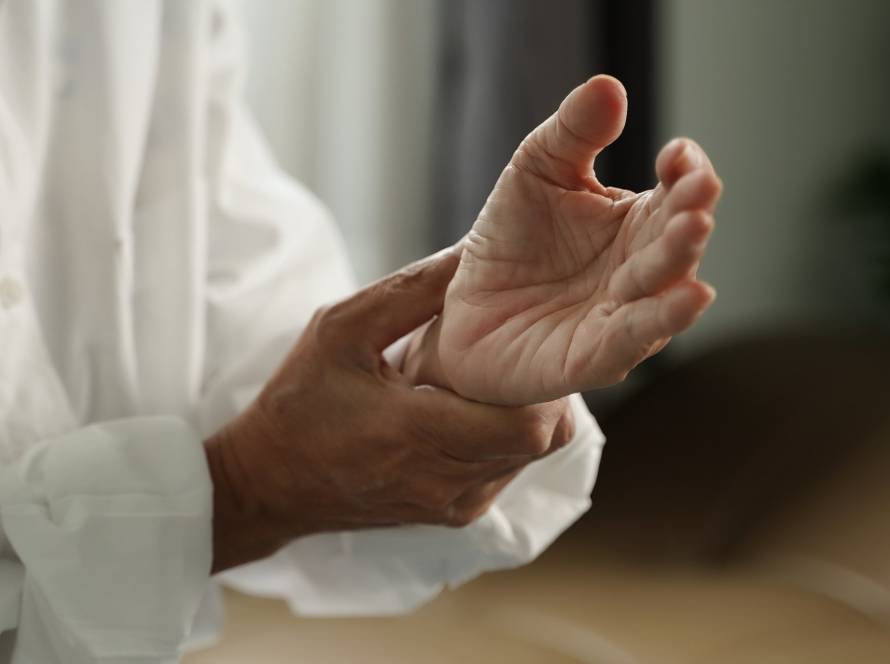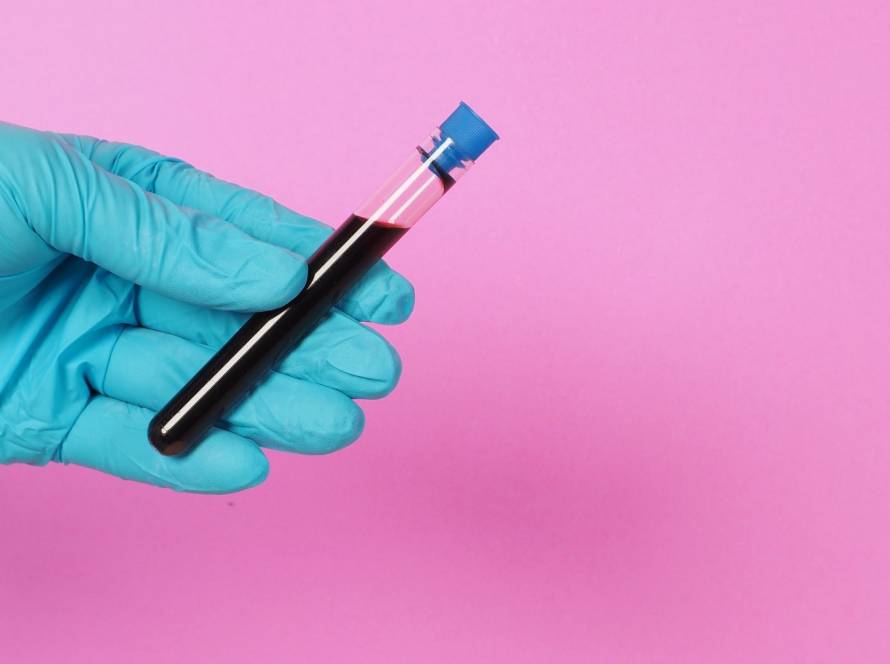Science reveals that our chronological age and biological age can be substantially different. DNA methylation in blood has emerged as our most accurate predictor of mortality. This is a big deal as it means that DNA methylation outperforms simple birth year calculations.
This complete guide will highlight the main differences between chronological age vs biological age. We’ll learn to measure our true biological age and discover evidence based strategies that might slow down our aging process. The number of candles on our birthday cake might matter less than our bodys actual aging rate.
Understanding chronological age
People count their age from birth (chronological age), which serves as the main way to define how old they are. But this simple number has deeper meaning for health and well being throughout life.
What the numbers tell us
Your age moves forward at a fixed rate that we measure in years, months and days. This measurement lets you take part in important life activities that have legal age limits, like voting, getting a drivers license and starting work. Age also gives us a standard baseline to measure intelligence through IQ scores and assess typical behaviors for specific age groups.
The month you’re born relates surprisingly to various health outcomes. Studies have found links between birth seasons and mental health conditions. People born during winter months have a small but statistically significant increased risk of developing schizophrenia compared to those born in summer months.
Limitations as a health marker
Age serves as a key risk factor for chronic diseases and mortality. But growing evidence shows it’s not always reliable as a health indicator. Studies reveal that chronological age often fails to accurately predict economic variables and how well your body functions. This happens because people of similar ages can show big differences in their health and physiology.
Several factors affect how aging shows up differently in people:
- Genetics;
- Lifestyle choices;
- Environmental factors;
- Quality of life variations.
Research shows that older adults in various cultures feel younger than their actual age. This feeling becomes stronger as they get older. Physical health and how people view their health explain the biggest differences in how old they feel. Poor health makes people feel older.
A large study that ran for 13 years found that how old people felt predicted worse health and higher death rates. These findings stayed true even after accounting for:
- Objective health status;
- Subjective health status;
- Mental health;
- Cognitive health;
- Demographic factors.
Life events that mark age, like retirement and losing a spouse, can change how old people feel by moving them into expected social roles.
Using chronological age alone to measure how well someone’s body works might stop societies from getting the full benefits of longer lifespans. This becomes especially important as global populations change: by 2030, one in six people worldwide will be over 60 years old. We need better ways to understand aging.
The science of biological age
Age shows itself through complex cellular and molecular changes that determine our biological age. Our cells experience DNA damage up to a million times each day. These changes fundamentally shape how our bodies age at the microscopic level.
How your body ages
Multiple interconnected mechanisms drive the aging process at the cellular level. Cells experience functional decline and die through a programmed process called apoptosis. DNA methylation patterns change with age in specific ways for different tissues. These changes affect cellular function. The bodys aging process depends more on lifestyle and environmental factors than genetics. Genetic factors only account for 15-25% of aging outcomes.
Key biological markers
Scientists have found several important markers that show biological aging:
- Telomere length: these protective caps at chromosome ends get shorter with each cell division and guide cells toward senescence;
- DNA methylation: scientists can predict biological age accurately by looking at just 350 methylation sites;
- Mitochondrial function: the cellular powerhouses change how they produce energy and handle metabolism;
- Cellular senescence: aging cells stop dividing and release molecules that harm surrounding tissues.
Cellular aging processes
Cells age through specific pathways. They grow larger and die when they reach their replication limit. Waste products build up in tissues and fatty substances called lipofuscin accumulate.
Different organs age in unique ways. The body experiences changes in:
- Cell membranes ability to absorb oxygen and nutrients;
- Systems that fold and maintain proteins;
- Stem cells power to regenerate;
- Networks that help cells communicate.
New researches shows aging cells have specific traits:
- DNA damage accumulation: cells work less efficiently and face higher cancer risks;
- Mitochondrial dysfunction: energy production drops while oxidative stress increases;
- Protein homeostasis disruption: proteins clump together, often causing neurodegenerative conditions.
Biological aging markers predict mortality rates better than chronological age. These indicators help us learn about a persons true physiological state and could be targets to slow aging.
The importance of understanding cellular mechanisms grows as global demographics change. Scientists haven’t found a single marker that captures biological agings complexity. They use multiple complementary markers that give a detailed picture of how we age.
Measuring your true age
Science now gives us several ways to find out your real biological age beyond just counting birthdays. Research shows that two people who are the same age can have very different physical abilities. A 50 year old might run marathons easily while another person the same age finds it hard to climb stairs.
DNA methylation tests
DNA methylation patterns help predict your biological age accurately. These patterns change based on your health. A person with diabetes shows different methylation patterns than someone who doesn’t have it. Epigenetic clocks based on DNA methylation changes at specific CpG sites can reveal inter individual variability in biological aging patterns.
Blood biomarker analysis
Blood markers are a great way to get information about aging through several indicators:
- Inflammation levels;
- Metabolic markers like insulin and glucose;
- Hormone levels;
- Immune system markers.
Scientists have found 14 metabolic markers that link closely to predicted survival rates. Studies show that proteomic aging clocks that look at protein levels in body fluids add more precision to biological age measurements.
Physical performance tests
Physical tests review many body functions:
- Cardiovascular fitness: exercise tests and oxygen uptake show how well your heart works;
- Muscular strength: hand grip strength tells us about overall strength;
- Joint mobility: tests check flexibility and movement range;
- Lung capacity: breathing tests measure how well lungs work.
Good physical fitness throughout adult life helps you stay independent and slows down aging. The Six Minute Walk test has become a common way to check overall functional capacity. It tells us about your lung, heart and metabolic systems.
Cognitive assessments
Brain function tests look at mental abilities that change as we age:
- Memory capacity;
- Attention span;
- Problem solving abilities;
- Information processing speed.
Today’s biological age testing uses multiple markers because no single test can predict aging rates accurately. The best tests are easy to do, repeatable, budget friendly and ideally non invasive.
Lifestyle factors affecting aging
Research shows that our lifestyle choices play a vital role in how fast we age biologically. Studies show that healthy habits can slow down aging at cellular and molecular levels by a lot.
Diet and nutrition effect
Your food choices directly affect biological aging markers. A complete study with 8,839 participants found that eating foods high in Dietary Inflammatory Index made people age faster. People who ate more plant based foods aged slower over 8 years.
Scientists exploring women’s eating patterns found that those who followed Mediterranean diets had slower DNA methylation age progression. A newer study found that there was a connection between younger biological age and diets rich in folate.
Exercise and movement
Exercise proves to be a powerful way to slow biological aging. Research shows that physical activities outside work associate with better leukocyte telomere length. A game changing study with 30 inactive adults showed that high intensity interval training reduced biological age by about 3.6 years.
Exercise benefits include:
- Better cardiovascular health;
- Improved immune function;
- Slower telomere shortening rates.
Sleep quality
Age changes sleep patterns and this affects how we age biologically. Poor sleep speeds up cellular aging through several ways:
- Changes in DNA methylation patterns;
- Higher oxidative stress;
- Problems with cellular repair.
Research shows that the 50% of older adults have sleep problems. Sleep issues often come from:
- Health conditions that affect sleep;
- Medicines that disrupt sleep;
- Less physical activity;
- Changes in daily body rhythms.
An 8 week pilot study focused on diet, supplements, sleep, exercise and stress management showed promising results. People in the study reduced their DNA methylation age by 1.96 years.
Modern approaches to slow aging
Scientists have discovered promising ways to slow down biological aging. Research shows aging happens through various forms of biochemical damage that stem from metabolic inefficiencies and limited maintenance pathways.
Evidence based supplements
Natural compounds can help support healthy aging. Turmerics active compound, curcumin, protects cells through its antioxidant effects. Research shows that polyphenols work as antioxidants and reduce inflammation to prevent age related diseases.
These supplements have shown strong anti-aging benefits:
- Coenzyme Q10 (CoQ10): a 4-year study with 443 older adults showed that CoQ10 supplements improved quality of life and slowed physical and mental decline;
- Nicotinamide riboside (NR) and nicotinamide mononucleotide (NMN): these compounds help restore NAD+ levels that drop as we age;
- Vitamin C: a study of 80 adults around age 60 found that higher blood levels of vitamin C associated with better attention, memory and decision making skills.
Stress reduction techniques
The body ages faster when exposed to chronic stress. Scientists have found that long term stress might speed up how quickly we age. Stress affects aging through several biological pathways:
- Changes in cellular metabolism;
- Faster DNA damage;
- Shorter telomeres;
- More cellular senescence;
- Different inflammatory responses.
Environmental factors
The environment plays a big role in how we age. Sun exposure causes more than 90% of age related skin problems. Smoking also makes skin age prematurely.
New studies point out other environmental effects:
- Air pollution increases the risk of becoming frail;
- Living near green spaces reduces frailty risk;
- Neighborhoods with parks and sidewalks help people age better.
Scientists have found that environmental factors change our epigenetics, which affects how long we live. New evidence links aging to shorter telomeres, DNA damage, poor mitochondrial function and reduced macro autophagy. Finding safe ways to improve health becomes vital for healthy aging.
The gap between our chronological and biological age gives us the ability to manage how we age. While no one can change their birth date, science confirms you can impact your biological age through proven methods. Research shows that good nutrition, regular exercise, quality sleep and managing stress can make you biologically younger by several years.
Our focus on optimizing biological age gives us a practical way to live longer and healthier. Modern science now offers tools to track and adjust how quickly you age, which helps make better health choices. Our biological age ended up being a better measure of overall health and longevity than just counting years.
Learn more about:


